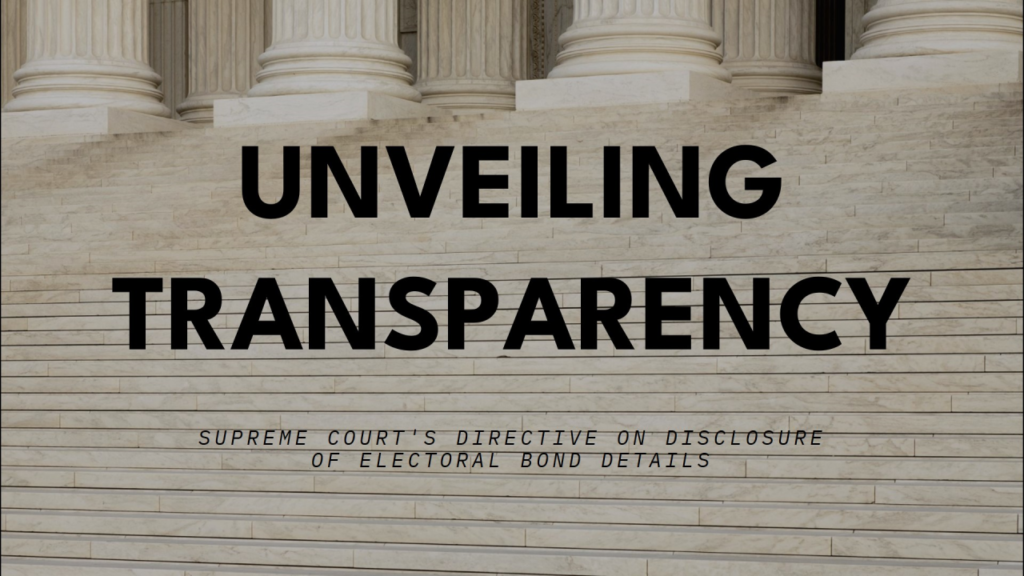Introduction: In a significant move towards transparency in political funding, the Supreme Court’s recent directive has paved the way for the disclosure of electoral bond details in India. This blog delves into the implications of this landmark decision and its impact on the country’s electoral landscape.
I. Supreme Court’s Directive (March 19, 2024): The Supreme Court issued a directive to the State Bank of India (SBI) to divulge all information regarding electoral bonds, including alphanumeric and serial numbers of purchased and redeemed bonds. Additionally, the Election Commission is mandated to publish this data on their website, ensuring public access to crucial information on political funding.
II. Election Commission’s Response: Following the Supreme Court’s directive, the Election Commission promptly uploaded electoral bond data on its website, enhancing transparency and accountability in political financing.
III. Judicial Decisions (February 15, 2024): Earlier in February, the Supreme Court made pivotal decisions rejecting the government’s argument against disclosing electoral bond details. The court emphasized citizens’ right to know and instructed the Election Commission to publish information on bonds encashed by political parties. Moreover, it highlighted electoral bonds’ limitations in combating black money in politics.
IV. Recent Petition and Its Significance (March 19, 2024): A recent petition filed in the Supreme Court seeks disclosure of electoral bonds worth Rs 4,000 crore sold before April 2019. This petition underscores the growing demand for transparency and accountability in political funding, signifying a paradigm shift in India’s electoral landscape.
V. Analysis of Developments: These recent events mark a significant stride towards transparency in political financing, heralding a new era of accountability. The disclosure of electoral bond details fosters greater public scrutiny of political contributions, strengthening democratic principles and promoting fair electoral practices.
VI. FAQ’s (Frequently Asked Questions):
Q1. What are electoral bonds? Electoral bonds are financial instruments used for making donations to political parties in India. They were introduced to enhance transparency in political funding by enabling individuals and organizations to make contributions through legitimate banking channels.
Q2. Why is the disclosure of electoral bond details significant? The disclosure of electoral bond details allows for greater transparency in political financing, enabling citizens to track donations made to political parties. This transparency is essential for promoting accountability and preventing the misuse of funds in elections.
Q3. How does the Supreme Court’s directive impact electoral transparency? The Supreme Court’s directive mandates the disclosure of electoral bond details, including information on purchased and redeemed bonds. This ensures public access to crucial information on political funding, thereby enhancing electoral transparency and accountability.
Conclusion: The Supreme Court’s directive on the disclosure of electoral bond details represents a significant step towards transparency and accountability in political financing. By shedding light on political contributions, this move strengthens democratic principles and fosters public trust in the electoral process.

